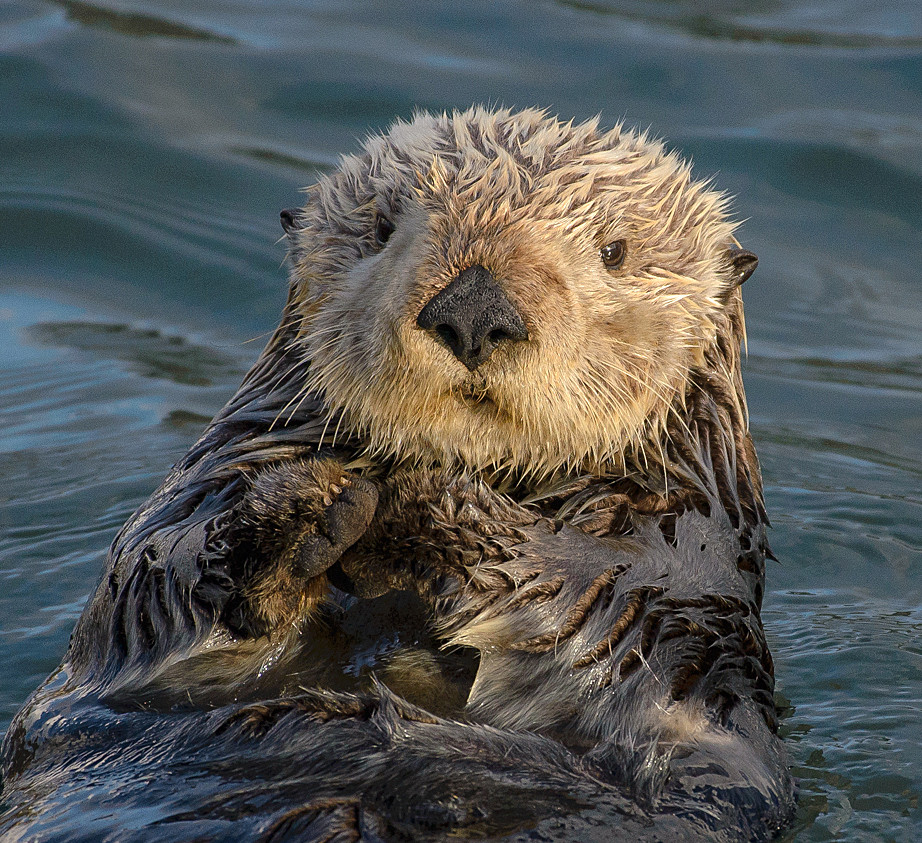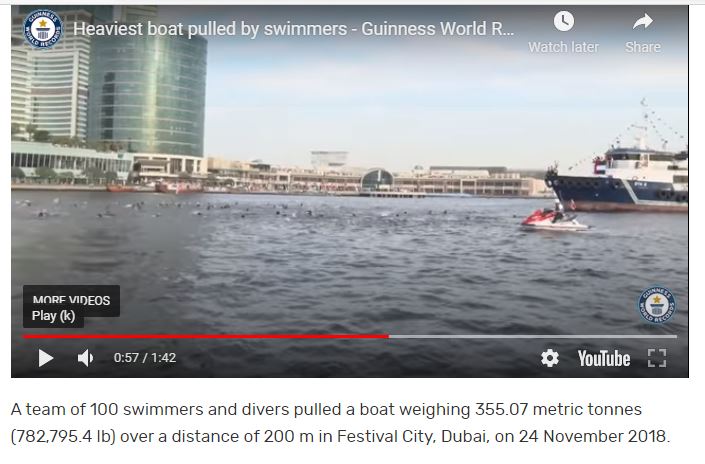Giant Newfoundland
A Newfoundland is a kind of dog. For dogs it ranges between big and colossal. They were bred for rescuing people in the water and can do so on long distances. They can even go into rough seas, but likely they aren't used to stay in rough seas for extended periods. They have webbed feet, long lasting lungs and won't get cold thanks to their thick fur. Even on land they are strong dogs. They are very intelligent, easy to train and very loyal.
In your altered flora and founa, a giant version of the Newfoundland is created. It can haul large weights on the water, including in teams. A giant version might have the spine to allow riders both in the water and outside. Their high trainability helps for a huge amount multiple roles. This can range from land riding and hauling to hunting and guarding.
Dogs are highly "customisable". We've been breeding them for many wildly varying results. Improvements in breeds like better stamina, lesser fur for warmer climates, faster or stronger versions. Smaller ones can be better for hunting, herding and companionship, while bigger ones can draw the water carriages and a whole slew of multipurpose roles in between.
They are carnivores, which might be a problem if not enough fish or other meat is available. Compared to horses they require food to be brought with you. On the other hand, the long trecks with Huskies are working and we've been living with dogs for a long time now while being able to feed them. That being said, it's a slightly altered Earth. Dogs have omnivorous characteristics already, so we can expand them to being true omnivores.
I would think of a wide range of these dogs to help you both in the waterways and outside. Huskies of the river, fish-herder dogs and companions. There's a lot of possibility here.


